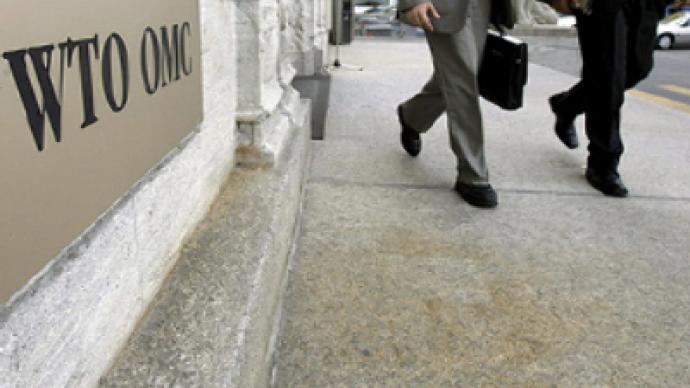Russia looks to push WTO bid ahead of customs union

First deputy prime minister, Igor Shuvalov says Russia will look to accede to WTO membership ahead of customs union partners Kazkahstan and Belarus.
Speaking in Washington DC Shuvalov said Russia would look to proceed with WTO membership, adding "It would be beneficial for everyone if Russia became a member of the WTO before we create a common market with Kazakhstan and Belarus.”
The comments come after Russia indicated in 2009 that it would look to create the customs union first and then follow through with WTO accession.
Danila Levchenko, Chief Economist at Otkrytie FC, says that the new direction indicated by the first deputy prime minister are likely to find a positive reception.
“Generally speaking, the very idea to join WTO as a customs union was unprecedented and its benefits aren’t obvious at all. I think it’s better for everybody to join WTO separately.”
Clemens Grafe, chief economist, Russia and CIS, at UBS believes that Shuvalov’s comments about Russia’s change of approach could mean that it will accede to WTO membership earlier than currently expected.
“Yes, it does. Joining as a customs union would have meant to reopen all the bilateral agreements with each WTO member country. This would most likely have taken years.”
At the same time he doesn’t think that Russia going it alone with WTO membership would undermine the proposed customs union, and could make it easier for other nations to become part of the customs union.
“Being a WTO member does not mean you cannot be a member of a customs union, the EU for instance is the best example of customs unions and member states being in the WTO as is NAFTA. In essence WTO membership fixes maximum trade barriers with all WTO other members, this does not stop Russia from agreeing even lower tariffs with some countries no matter if these are members of WTO or not. However, a customs union would effectively force Belarus and Kazakhstan’s tariffs down to the level that Russia charges WTO members as Belarusian and Kazakh firms could otherwise import via Russia. We think this would be potentially more of a problem for Belarus than for Kazakhstan which is likely to follow Russia into WTO quickly anyway. On the positive side it would for instance make it easier to include Ukraine, an existing WTO member, in a customs union.”
Grafe adds that WTO membership would be likely to limit the ability of the Russian government to protect domestic producers from the effects of an appreciating Rouble, and make more overt measures to limit the impact of speculative inflows possible.
“The government's options to protect certain domestic industries from a stronger Ruble through import tariffs would clearly be limited. So keeping the exchange rate competitive will be even more important and if capital flows into emerging markets really become a flood, some form of capital controls could become more attractive.”
Otkrytie FC’s Levchenko, believes early WTO accession would be positive for the Russian economy.
“Of course, if Russia complies with the rules ser by WTO, the accession to the organization will be good for the country’s economy. This will both significantly increase Russia’s trade turnover and boost its investment profile."
Clemens Grafe, believes the immediate impact of accession could be quite limited but that it would be a key step in developing a more competitive economy over the longer term.
“We don't think that the immediate impact would be very large. Russia's exporters are producing goods that are in demand anyway and most imports are into sectors where there is very little Russian production. Cars are the only exception, but then there the competition is already here after foreign producers set up local plants. Long term, the main issue is that it will foster competition in Russia which should be positive.”












